
IT'S A SUNNY SUNDAY in Mangabeiras Municipal Park, Belo Horizonte, Brazil. In spite of the pandemic, the park is crowded, and for good reason - it is one of the largest urban parks in Latin America and a valuable green lung for the city's residents. Children run around the Praça das Águas (Waters Square) with balloons and candyfloss, while their parents rest and cool down with ice creams.
Strolling up to the Ilhas do Passatempo (Pastime Islands) – a pleasant picnic area in the woods – I spy a different kind of movement. A long tail, striped yellow and black, emerges from a rubbish bin. Seconds later, I spot another tail, followed by a long snout and a charismatic little face resembling a cross between a fox and a raccoon. There’s a black mask over the snout and white dots around the eyes. The ears are short and rounded; the limbs are stocky with strong claws. These are ringtailed coatis, a medium-sized carnivore related to raccoons and kinkajous.
Before I know it, several dozen of them have surrounded me and the visitors enjoying their Sunday treats. They move fast, jumping between bins in search of food scraps, and the bolder ones even invade a picnic that has been left unattended, making off with a bag of bread and cheese. By the time their victims realise, the coatis are already in the trees, sharing the loot.
I don’t escape, either. As I turn to photograph the action, a sneaky individual seizes my lunch – a sandwich inside a bag – and runs to the safety of the forest. I’ve been mugged by coatis!
Esta historia es de la edición October 2022 de BBC Wildlife.
Comience su prueba gratuita de Magzter GOLD de 7 días para acceder a miles de historias premium seleccionadas y a más de 8500 revistas y periódicos.
Ya eres suscriptor ? Conectar
Esta historia es de la edición October 2022 de BBC Wildlife.
Comience su prueba gratuita de Magzter GOLD de 7 días para acceder a miles de historias premium seleccionadas y a más de 8500 revistas y periódicos.
Ya eres suscriptor? Conectar
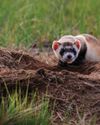
Does cloning create identical copies?
EMBRYOS ARE MADE OF STEM CELLS that divide to give rise to different types of cells, everything from skin to brain cells. Scientists once thought that reproductive cloning creating a genetically identical copy of an individual organism - would be impossible without using stem cells and that the path leading to mature 'differentiated' cells was irreversible. But clawed frogs proved them wrong...
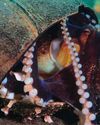
Tool-using animals
Our pick of 10 species that exhibit this special skill

Mission Blue
Sylvia Earle has dedicated her life to marine conservation; she tells BBC Wildlife why protecting the ocean is essential to all life on earth

RESHARK
The world's first shark rewilding initiative has seen zebra sharks released in the waters of Indonesia's Raja Ampat archipelago
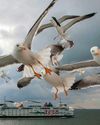
ON DECK
Ferries aren't just for transport, they're also perfect vessels for conservation
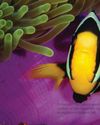
IT'S A COLOURFUL LIFE
Delve into the unique and complex biology of the clownfish, arguably the world's most famous fish

BAHAMAS BENEATH
A dive into the waters of this famous island nation with the creatures that call it home

"To save the reef, we need everybody involved"
Indigenous peoples may hold the key to protecting the Great Barrier Reef
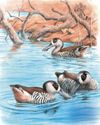
SPINNING AROUND
Going around in circles proves fruitful for this filter-feeder
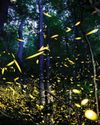
BLINDED BY THE LIGHT
On balmy evenings, amorous beetles put on a spellbinding show in North American forests